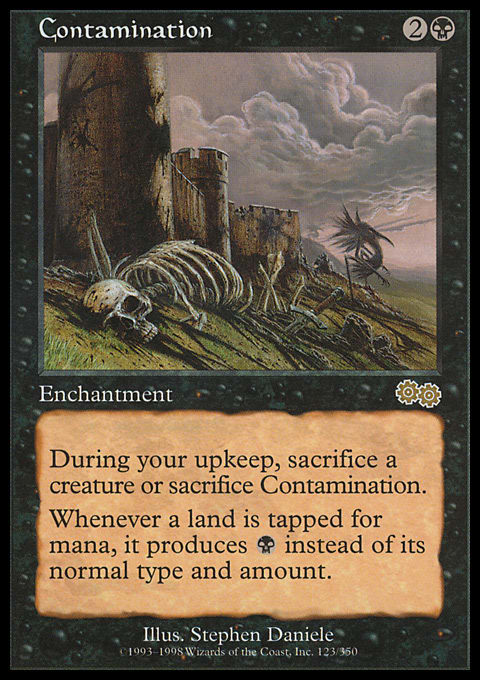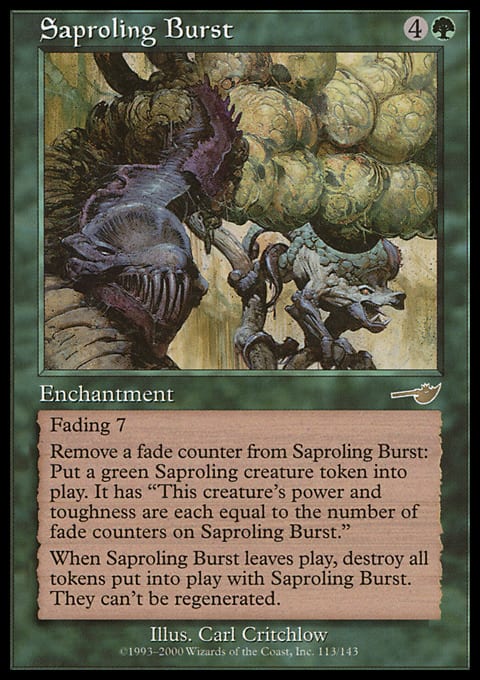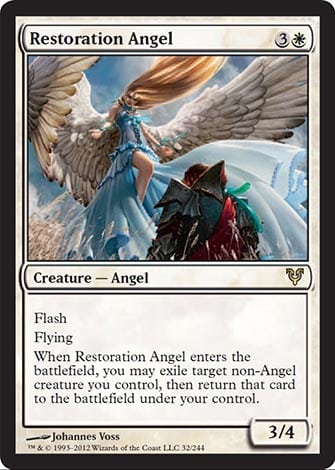This week, I chose to interview a good friend of mine, Harry Corvese—who has been on a good run recently—to see how he thinks about and approaches Magic. His first Pro Tour was at the same time as mine (Pro Tour: Paris 2011), so we have had a chance to talk a fair amount in the trenches of competition. He now has three Grand Prix Top 8s (Pittsburgh 2011, Philadelphia 2012, and San Antonio 2012).
I had a chance to catch up with him and figure out where he comes from in terms of Magic and what advice he can give to people looking to break through, since he has recently done it for himself.
Jarvis: How and when and where did you start playing Magic?
Harry Corvese: My father bought me a pack of Ice Age when I was a small child; I had seen the game played at a day camp and wanted to be involved. It wasn't until Mercadian Masques was released when I started reading InQuest magazine and playing the game in a competitive environment. I played outside of Philadelphia (in Downingtown and West Chester, Pennsylvania).
Jarvis: What was the first format you played Constructed in? And what was the deck?
Harry: I was playing standard (Masques and Urza’s Saga) at the time with a mono-red burn deck that I eventually added blue to for countermagic. I quickly moved onto Nether Spirit with Contamination but never could have success in my local area until Invasion came out. I remember Fires with Saproling Burst and Merfolk Opposition well.
Jarvis: What drove you to pick up Magic as a serious competitive endeavor? And what about it attracts you as a competitive endeavor, as opposed to a sport such as soccer, which I know you coach?
Harry: It was a thing that I enjoyed a great deal—my friends and I spent a lot of time and energy on the game. I was also very competitive, and anything that I spent a lot of energy on I wanted to succeed with. It's a mind sport for me. I enjoy strategy games, and as I grew older and actively played less sports, mind sports like Magic and poker became more appealing.
Jarvis: Did you ever play chess or anything similar to Magic beforehand?
Harry: Chess was the first game I learned after card games like gin and blackjack, which my grandfather taught me; my grandmother was the chess influence at age five and six.
Jarvis: So, this is why I can never beat you in gin . . .
Harry: Gin is my oldest game; you have some catching up to do. ?
Jarvis: When did you start playing with the Pittsburgh crowd, and how integral were they to your development as a Limited player? Pittsburgh is famous for being a great development zone for Limited players (such as Mike Turian, Eugene Harvey, and the like).
Harry: I moved to Pittsburgh from Boulder, Colorado (I went there after high school; I'm a bit of a wayward soul) about three years ago. Pittsburgh players and CMU players specifically taught me how to refine my Limited game. Limited Magic and team drafting in particular are staples of the CMU Magic diet. It was huge for me to be exposed to that environment.
Jarvis: When and where did you first qualify for the Pro Tour?
Harry: I won my first Pro Tour Qualifier in Toronto on Day 2 of the Grand Prix; it was Scars of Mirrodin Sealed Deck (and Draft), and it qualified me for Pro Tour: Paris.
Jarvis: Which Pro Tours have you played in, and what are your best finishes at the Grand Prix and Pro Tour level?
Harry: I played in Pro Tour: Paris, Worlds in San Francisco, and Honolulu (last February) to no great result. I have three Grand Prix Top 8s: Pittsburgh 2011, Philadelphia last month, and San Antonio this past weekend. Additionally, I've cashed my last seven non-Team Grands Prix in a row, and nine out of my last ten date back to Pittsburgh.
Jarvis: In the past few years, it seems as though you have really come into your own on the highest levels of the game. To what can you attribute in you making the jump from putting up occasional decent performances to stringing together really high finishes?
Harry: The best tool that any player has when he or she is competing in anything at all is self-evaluation. I tell the same thing to my soccer players. I've made all the mistakes, but very few more than once. At some point, all that experience hit a crescendo, and I broke through to a new level of confidence and ability.
Jarvis: To clarify when you say self-evaluation, it's implied you mean honest self-evaluation?
Harry: Indeed. I also subscribe to the school of Magic that suggests there is always something that could have been done to produce a favorable result, no matter how small. That leaves a lot of room for improvement.
Jarvis: For the average Pro Tour Qualifier players, what's the best advice you can give for them to improve to break through?
Harry: It's been said many times and many ways, but I still contend that playing with better players is key. However, if you don’t keep an open mind to listen to feedback and constructive criticism and so on, you are putting yourself into a large hole that you cannot dig out of alone.
Jarvis: What are you looking for in a Constructed deck? In particular, how do you manage to select decks in formats in which you haven't had a lot of time to play and test? Specifically, I know you didn't have a lot of time for the recent Grand Prix: Chicago or the recent Grand Prix: San Antonio to play and fine-tune decks.
Harry: Usually, when the best deck hasn't made itself clear, I like to pick decks that are versatile and have the most play. You will rarely find me in a spot where I'm playing a ramp deck or an aggro deck with bad mana. The worst feeling in Magic to me is running out of gas or being unable to cast my spells. That usually means I'll be playing decks with Islands, but every so often, a deck that grinds like Jund or a consistent aggressive deck (like mono-red) will catch my eye.
Jarvis: In that case, what led you to choose the R/W/U deck for San Antonio?
Harry: Well, it fit all of the above criteria. And having played Delver in the past, I knew the power of cards like Restoration Angel, Snapcaster Mage, and Geist of Saint Traft. If I had had more experience with the format and knew that I had a shot at playing perfectly in tight situations, I might have chosen to run the Bant control deck. However, unless that deck can figure out a better way to approach the Zombies matchup, you will probably see me casting Restoration Angels again in the future.
Jarvis: Are there any particular people who were very helpful in your development as a Magic player? (Or anyone you want to thank?)
Harry: I want to thank the regulars, the grinders, the people that are too numerous to name, who have had enough success to be confident in their own abilities, but not enough for anybody to really give a damn. Other than winning, those people provide the most joy that could ever come from playing a game like this regularly, and it's a shame to think that their place in the community might be becoming less emphasized by the goal of "making the Pro Tour smaller."
Additionally, I want to thank the players that are better than me for being better than me. I want to be as good as you, and in many cases, I want to be better than you. That desire gives me purpose, and that purpose makes me a more dangerous player. Thank you for setting the bar so that I might try to clear it.
Jarvis: Really? I set the bar for you? You're aiming too low then.
Harry: There are many bars, my dear friend, and they must be cleared one at a time.
This gave me some good insight on how Harry developed into a top-level player via his own path. Take the lessons he learned through years of hard work.
Next week, I hope to cover Standard (or Legacy) in a video.
Any comments or criticism about this article I can take here or on Twitter @jkyu06.
Thanks for reading.


























